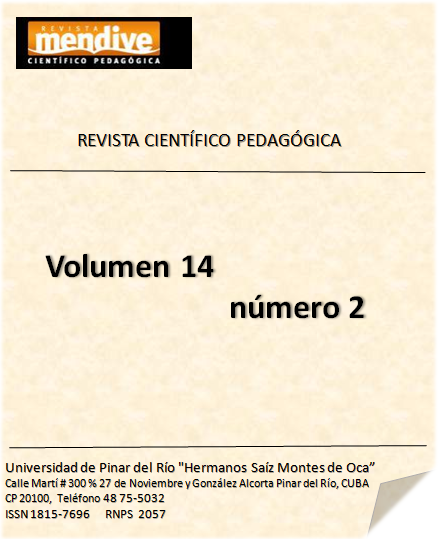La retroalimentación en la enseñanza de la expresión escrita en Inglés. Un proyecto de desarrollo profesional
Contenido principal del artículo
Resumen
Los profesores de la disciplina Práctica Integral de la Lengua Inglesa no tienen un único sistema de símbolos para la corrección escrita indirecta, y no se posee el conocimiento, ni las habilidades para ofrecer una retroalimentación efectiva. Como parte de un proyecto de desarrollo profesional continuo se generó interés y esfuerzo colaborativo en los profesores, los cuales perfeccionaron sus habilidades de corrección de errores, la capacidad para ofrecer retroalimentación efectiva, y sus habilidades para promover un proceso de autodesarrollo en sus estudiantes.
Descargas
Detalles del artículo
Citas
- Ash, D., & Levitt, K. (2003). Working within the zone of proximal development: Formative assessment as professional development. Journal of Science Teacher Education, 14(1), 23-48.
- Brown, A. L., Ash, D., Rutherford, M., Nakagawa, K., Gordon, A., & Campione, J. C. (1993). Distributed expertise in the classroom. Distributed cognitions: Psychological and educational considerations, 188-228.
- Hattie, J., Biggs, J., & Purdie, N. (1996). Effects of learning skills interventions on student learning: A meta-analysis. Review of educational research, 66(2), 99-136.
- Hattie, John & Timperley Helen. (2007). The Power of Feedback. Review of Educational Research, 77, (1), 81-112.
- Hattie, J. (2012). Know thy impact. Feedback, 70(1)18-23.
- Kluger, A. N. &DeNisi, A. (1996). The effects of feedback interventions on performance. A historical review, a meta-analysis, and a preliminary feedback intervention theory. Psychological Bulletin, 119, (2), 254-284.
- Locke, E. A., & Latham, G. P. (1984). Goal Setting: A motivational technique that Works! (p. 117). Englewood Cliffs, NJ: Prentice-Hall.
- Richards, J. C. (1987). The dilemma of teacher education in TESOL. TESOL Quarterly, 21(2), 209-226.
- Rogoff, B. (1994). Developing understanding of the idea of communities of learners. Mind, culture, and activity, 1(4), 209-229.
- Rogoff, B. (2008). Observing sociocultural activity on three planes: Participatory appropriation, guided participation, and apprenticeship. Pedagogy and practice: Culture and identities, 58-74.
- Scherer, Marge (2012). Finessing Feedback. En Feedback for Learning, Educational Leadership, 70, (1), 7.
- Wallace, M. J. (1991). Training foreign language teachers: A reflective approach. Cambridge University Press.
- Wiggins, Grant (2012). 7 Keys to Effective Feedback. En Feedback for Learning, Educational Leadership, 70, (1), 11-16.
- William, Dylan. (2012). Feedback. Part of a System. En Feedback for Learning, Educational Leadership, 70, (1), 31-34.
- Winne, P. H., & Butler, D. L. (1994). Student cognition in learning from teaching. International encyclopedia of education, 2, 5738-5775.


